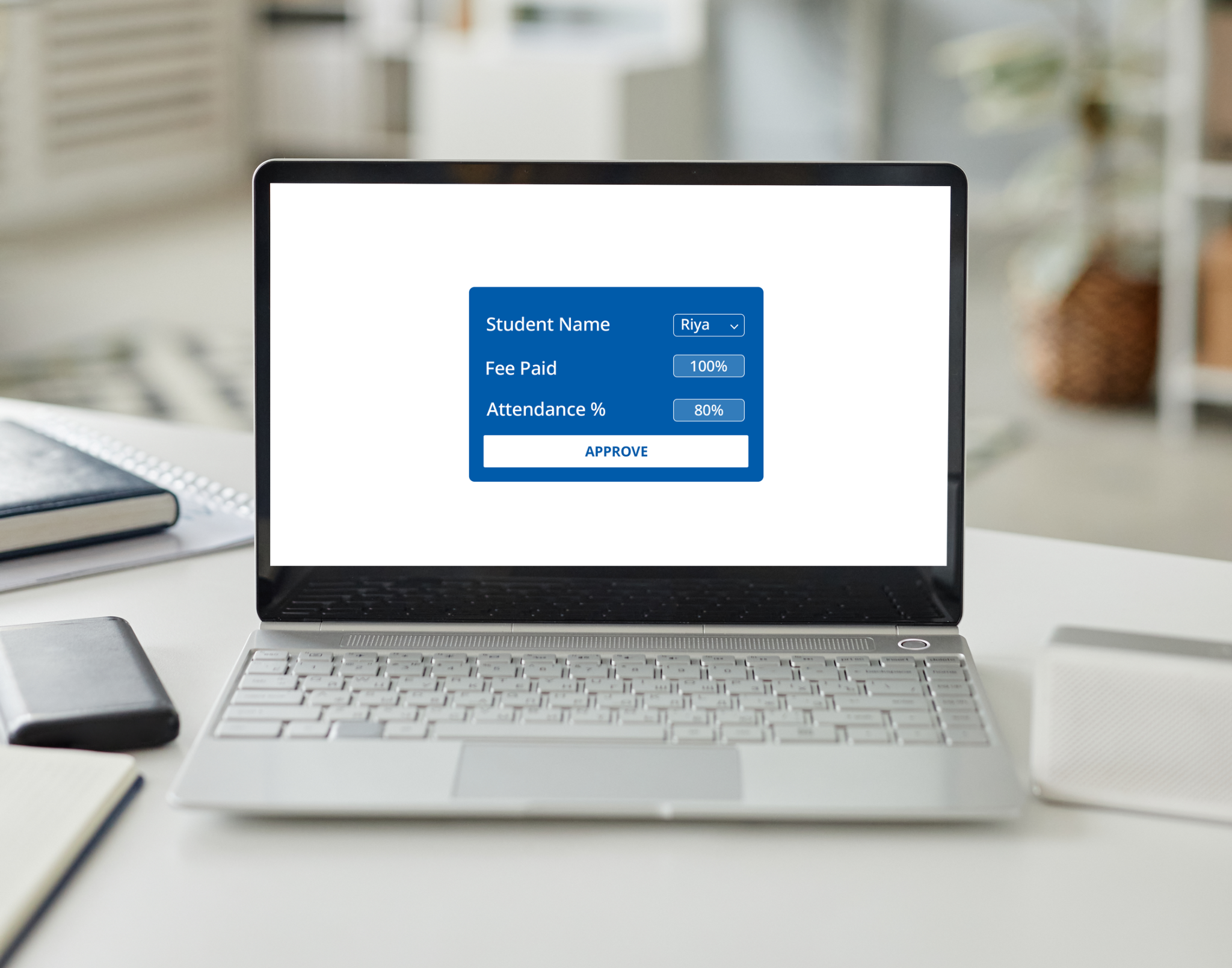
Organizing examinations consumes valuable time and resources in any institution, regardless of scale or nature. The task involves generating the hall ticket for students, taking into account their exam schedules for the semester, attendance records, and fee payments, all of which necessitate documentation.
Amidst the exhaustive preparations by CoE to conduct the examination, the initial phase of hall ticket validation presents its own challenges.
Common Issues CoE Faces During Hall Ticket Approval
Time-consuming Process:
Validating students’ eligibility for exams, particularly those retaking exams, is laborious and time-intensive for both students and faculty. Consider a scenario where a single staff member must validate subjects and fee payments for hundreds of students per batch while the fee counter manages thousands!
Long Queues:
Manual fee payment processes often result in lengthy student queues, impacting their overall experience. This is a significant concern for educational institutions striving to improve student satisfaction. Overcrowded fee payment counters add to staff stress, potentially leading to errors due to the overwhelming workload.
No Track of Fee Concession:
Manual validation of tuition fee payments is time-consuming, and there are often no records regarding student fee concessions. This oversight can lead to revenue leakage, as institutions may not accurately account for fee adjustments granted to eligible students.
Ambiguity in Subject Selection and Seat Allocation:
Manual exam hall ticket requests fail to maintain records of students’ selected subjects and mentor-approved choices, leading to ambiguity during the pre-exam preparation phase. This lack of clarity extends to seat allocation, faculty roster preparation, and question paper printing, resulting in unnecessary chaos and inefficiency.

What Does An Educational Institution Gain By Moving Hall Ticket Validation And Approval Online?

Effortless processes with comprehensive oversight ensure efficiency and compliance with administrative tasks.
Streamlined online exam registration, fee management, overall attendance validation, and hall ticket download enable seamless accomplishment of these tasks and efficient oversight of relevant details. This allows informed decision-making and ensures compliance without the need for manual intervention, enhancing overall efficiency.

The utilization of extensive data enhances exam organization and logistical planning.
Insights into student enrollment per subject assist in seat allotment, organizing faculty schedules, and determining the question papers required per subject. This streamlined approach replaces confusing and time-consuming manual processes, which is particularly beneficial for managing arrear examinations effectively.

Efficient validation of adherence to minimum requirements.
Validating whether the students meet the minimum requirements is a tiring task. This automated process significantly reduces manual effort and saves valuable time, allowing them to allocate resources effectively for organizing and administering the examination while focusing on critical tasks.

A holistic view of a list of ineligible students for proactive decision-making.
With a comprehensive view of fee payment, attendance, and concessions, the CoE can decide on hall ticket approvals efficiently. This supports proactive management of ineligible students and empowers mentors to investigate and address eligibility issues effectively.
Coordinating and overseeing examinations is a demanding responsibility, often consuming significant time and resources for the Controller of Examinations. Adopting advanced university management software for hall ticket generation marks the first step towards streamlining operations and effectively reducing complexities. The evolution of hall ticket generation is poised for a digital transformation, setting the stage with potential advancements in organizing examinations, including the integration of QR code scanning of hall tickets, predictive seat allocation based on historical data, and AI-driven enhancement of knowledge levels when setting up the question paper. By integrating these transformative methods, educational institutions can conduct examinations seamlessly, ensuring simplified workflow and optimized resource management.










